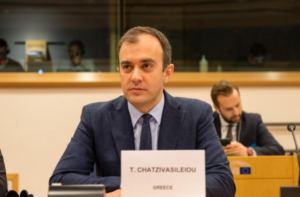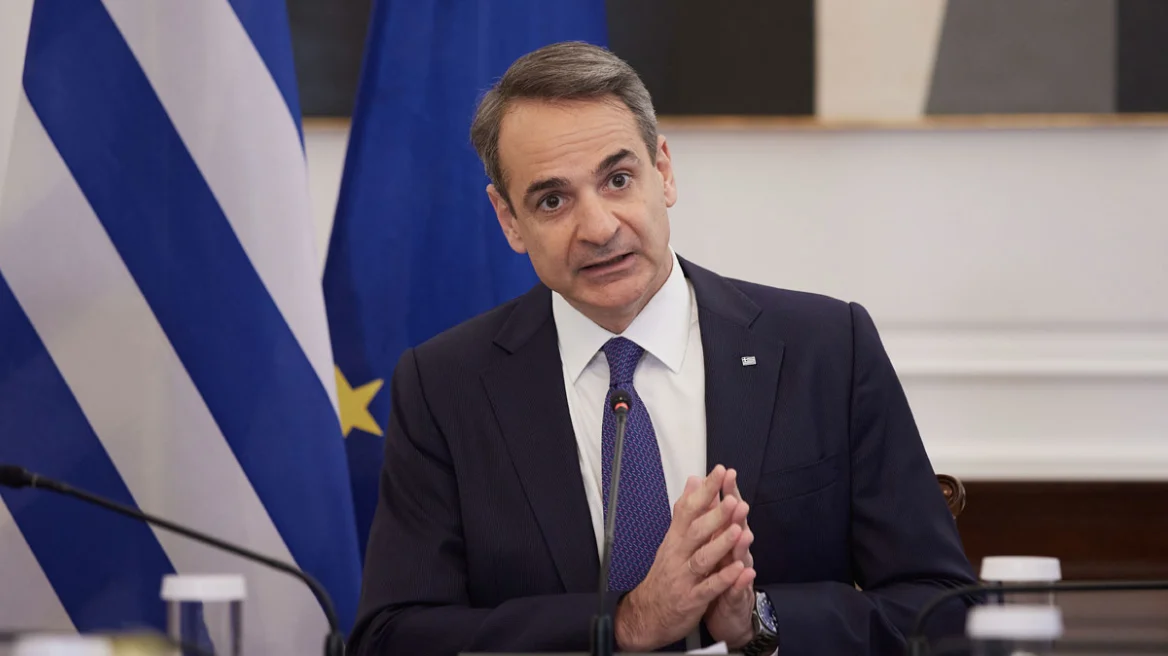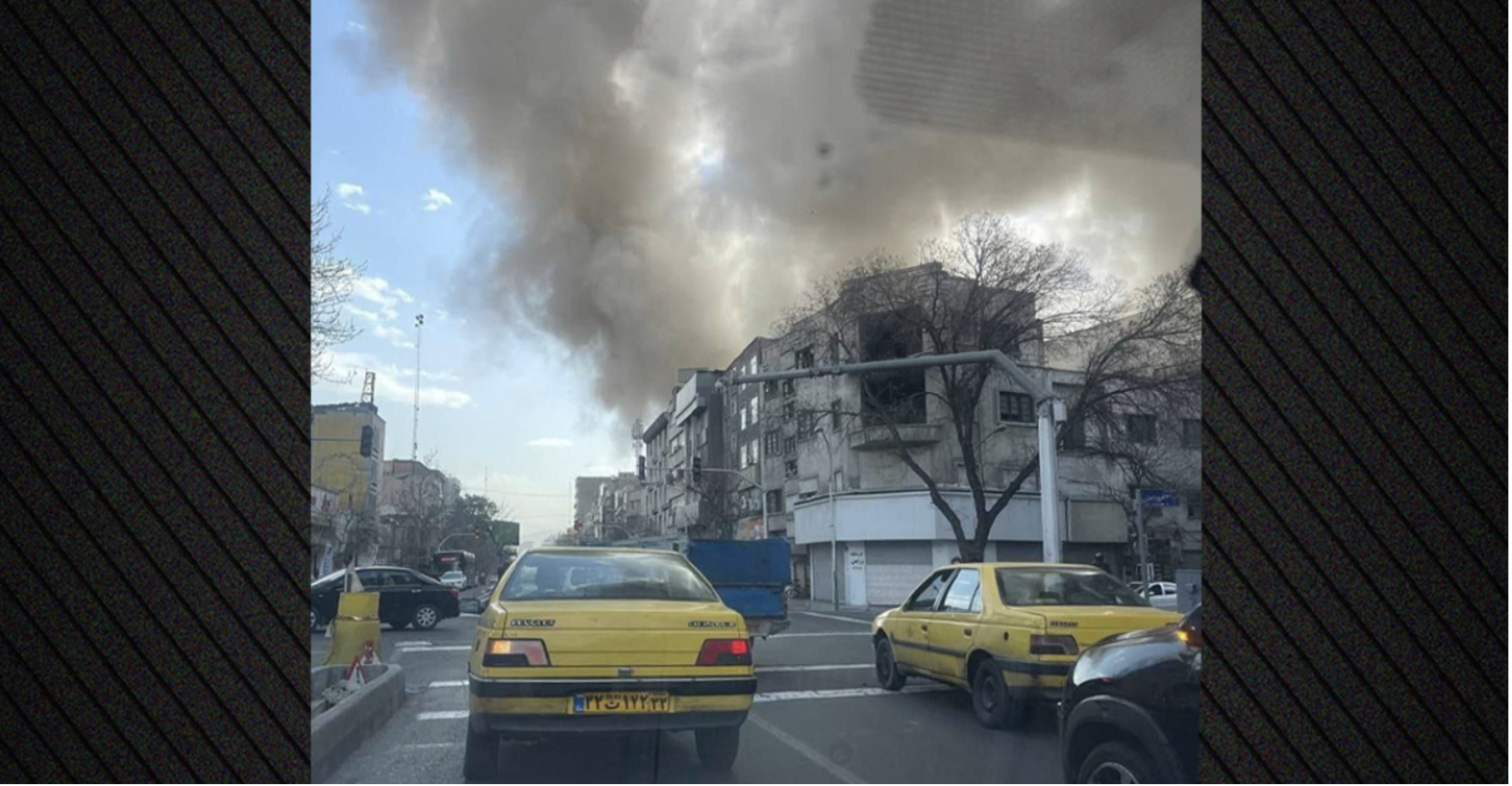The implementation of the new Migration and Asylum Pact in the European Parliament yesterday was characterised as a ‘historic decision for Europe’ by New Democracy MP and international relations expert Tasos Chatzivasilis.
“I dare to say that after ten years of setbacks, Europe is finally moving towards adopting a Pact that essentially institutionalises a unified policy for addressing this important issue,” he stated in an interview on First Program 91.6 and 105.8 with Vasilis Adamopoulos and Maria Georgiou.”
Explaining what they achieved with the new Pact, the frontline countries, such as ours, Mr. Chatzivasilis stated that the other EU member states will be able and should be obligated to contribute in the future in three mandatory ways. Either by accepting people who have applied for asylum within their territory, or people who are under protection, or by financially contributing to support the frontline countries, or by providing specific operational, material, and technical support. So practically, solidarity among European countries becomes European law, according to Mr. Chatzivasilis.
Furthermore, he added, there is also a regulation for addressing crisis situations which essentially helps the European Union countries manage cases of sudden increases in refugee and migrant arrivals, something that assists in policy implementation in order to address the problem more effectively. It also brings faster asylum procedures, which is also significant, added Mr. Chatzivasilis, so that these asylum applications at the borders of the European Union are processed more quickly, and also shorter deadlines are set for those asylum applications that are deemed inadmissible or unfounded. “Practically, therefore, whoever is not entitled to asylum will be quickly made aware so as not to ‘enjoy’ European protection. Therefore, let’s move promptly to distinguish who is entitled to asylum, who is entitled to protection, and who is not,” Mr. Chatzivasilis emphasised.
“Ten years ago, when the mechanism for fair distribution of refugee burdens began to be discussed, there were northern European countries – and let’s be honest about this, so that Greek citizens know – which in order to implement that regulation, the agreement and to take refugees from the southern countries, from us for example, shamefully were asking for refugees who would be, for example, doctors, nurses, civil engineers. I won’t mention countries, I’ll say that some countries in Northern Europe did it for a long time and even from the newer European countries, that is, from the partners who joined the European Union in the last twenty years. Was this solidarity? The question is rhetorical,” said the New Democracy MP.
Mr. Chatzivasilis expressed optimism that “things will change in the management of this major crisis, which, it seems, never ends.”
“It is a very important development. It is a historic step for Europe, which ultimately shows that Europe can and must move forward united on major issues, such as this one. Enough with the piecemeal policies. Here we need central handling, and this is a very good step,” he emphasised.
Regarding the other issue, which concerns Greek-Turkish relations that emerged after Greece’s decision to create two marine parks, Mr. Chatzivasilis stressed that Turkey, yesterday “wrongly politicised the issue of environmental protection.”
“Greece applies a foreign policy of principles based on international law, and Greece implements a strict environmental policy within the framework of its participation in the European Union. You know the European standards in the environment and we follow them. However, here, Turkey wrongly linked the environment with our bilateral pending issue concerning the delimitation of the continental shelf and the EEZ. Moreover, the environment is an area of convergence. It is a pan-human issue, a challenge that concerns us all. Both Turks and Greeks and all other societies,” Mr. Chatzivasilis added.
With this announcement, Turkey reminds us of its obsolete positions, as it has historically projected and we have heard them many times,” he stressed, noting that no one in Greece is naive enough to believe that the calm in the field for a year now automatically means a change in the Turkish perception.
According to Mr. Chatzivasilis, Turkey reacts in this way because the government is under pressure from the opposition. “The essence of the matter says that the Turkish government issued this announcement two days after the opposition in Turkey criticised it because it did not react to Greece’s decision on the marine parks. Therefore, Erdogan is coming to move in this way to reconcile again the voters he lost to the opposition. Because, as we said in the previous days, this defeat of the AKP will bring a rhetoric of tension. This rhetoric of tension did not take long to come. We now see it as an act. (…) So the government must heal the wound caused to it by the local elections in Turkey. So the government must find a way to alleviate the pain caused to its body by this result and you understand, Erdogan is charged personally, as in the past he was credited with victories, now he is charged with defeat,” Mr. Chatzivasilis said.
Asked if the climate of the upcoming Mitsotakis-Erdogan meeting is affected by the latest development, Mr. Chatzivasilis initially clarified that the government’s plan for environmental protection with marine parks will continue as normal. “We don’t play with our national sovereignty and we don’t play such games as those sometimes Turkey tries to set up,” he stressed.
“We believe that this meeting will take place and must take place, even if there are disagreements like this one. After all, these meetings express our disagreements as well. (…) I therefore believe that the process of rapprochement between Athens and Ankara should continue. It moves step by step with its easy and difficult moments, but it must continue,” Mr. Chatzivasilis concluded.
Ask me anything
Explore related questions





